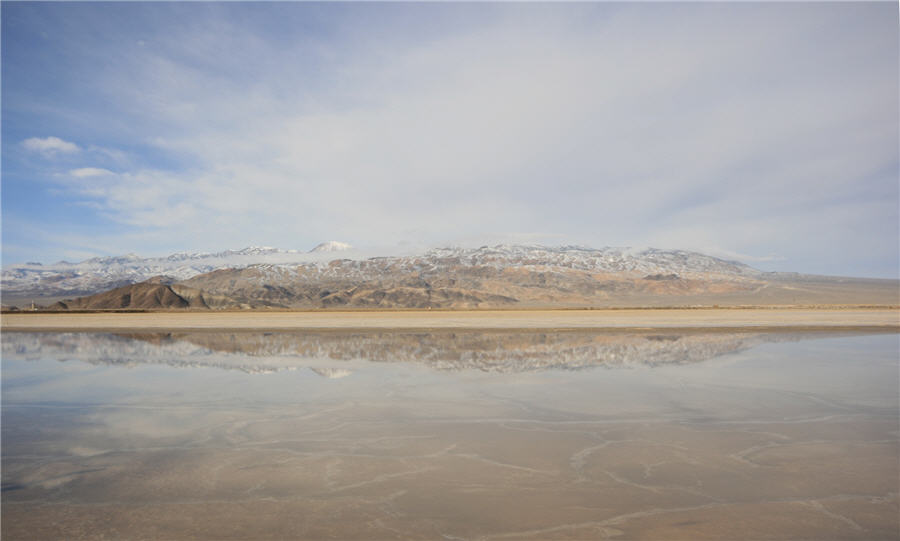Venezuelan lawmaker Jose Guerra dropped a bombshell on Twitter Tuesday: The Russian Boeing 777 that had landed in Caracas the day before was there to spirit away 20 tons of gold from the vaults of the country’s central bank.
The claim set off a welter of social media speculation and outrage. When asked how he knew this, Guerra provided no evidence.
Just another outlandish comment from a lawmaker trying to draw attention to the plight of crisis-torn Venezuela? Perhaps not.
For one thing, Guerra is a former central bank economist who remains in touch with old colleagues there. For another, a person with direct knowledge of the matter told Bloomberg News Tuesday that 20 tons of gold have been set aside in the central bank for loading. Worth some $840 million, the gold represents about 20 percent of its holdings of the metal in Venezuela, the person said. He provided no further information on plans for those bars.
“I’m going to start bringing Russian and Turkish airplanes every week so everybody gets scared”
With strongman President Nicolas Maduro losing control of the country’s already-scant finances and reserves thanks to U.S. sanctions, who can put his hands on the nation’s estimated 200 tons of gold at home and abroad has become a key question. The nation owes billions to its patrons Russia and China as well as bondholders, and also needs hard currency to buy food for its starving people.
Venezuela has been trying for years to increase its gold reserves by encouraging mining, putting the military in charge of vast territories that yield the precious metal. State gold processor Minerven melts the ore into bars, which military aircraft take to airbases around Caracas. Soldiers regularly unload it into armored vehicles bound for the central bank and beyond.
The U.S. has been working to put National Assembly head Juan Guaido, who says he is the nation’s rightful president, in charge of Venezuelan finances and starve the regime. Last week, the Bank of England denied Maduro officials’ request to withdraw $1.2 billion of gold stored there after top U.S. officials, including Secretary of State Michael Pompeo and National Security Adviser John Bolton, lobbied their U.K. counterparts to cut off the regime from its overseas assets.
On Monday, a plane belonging to Nordwind Airlines, a popular Russian charter operator based in Moscow, landed at the international airport near Caracas, according to flight tracking website FlightRadar24. A Nordwind spokesman declined to comment Wednesday on the purpose of the flight.
Finance Minister Simon Zerpa declined to comment on the nation’s gold and also said there was no Russian plane at Simon Bolivar International Airport.
“I’m going to start bringing Russian and Turkish airplanes every week so everybody gets scared,” he said.
Russia’s Foreign Ministry has no information about the charter jet, spokeswoman Maria Zakharova said in a message Wednesday. There are no plans to evacuate Russians from Venezuela, she said.
Kremlin Support
“Nordwind does a rather large number of these flights to order,” said Oleg Panteleyev, head of AviaPort, a Moscow aviation consultant. “As a rule, there aren’t a lot of orders for Venezuela, so this country can’t be called a popular destination among Russians,” though there’s no official ban on chartering an aircraft there, he said.
The Kremlin has lavished support on the Latin American country in recent years, making it one of the biggest recipients of Russian loans and investment and an outpost of Moscow’s influence in a region dominated by the U.S. But Russia has been reticent about committing more capital, especially because opposition officials have said they might not honor all the Maduro government’s obligations.
Russia vowed to “do everything” to protect Maduro against U.S. efforts to oust him as the Trump administration issued new sanctions against Venezuela on Monday, without elaborating what steps it would take.
A top Russian finance ministry official, meanwhile, warned that Venezuela could have trouble meeting payments under a $3.15 billion debt-rescheduling deal reached in 2017. The next installment of $100 million is due in March. The ministry said later that Russia expects Venezuela to meet its obligations, according to an emailed statement.
(By Patricia Laya and Andrew Rosati)




Comments